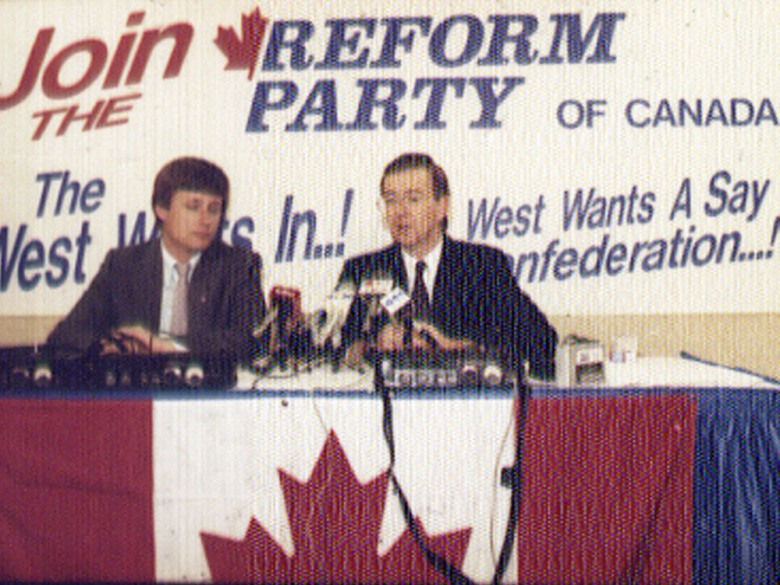While Alberta is unlikely to separate anytime soon, frustration in western Canada suggests there’s the potential for the rise of a regionally specific political party to represent the West in Ottawa.
New polling from the Angus Reid Institute shows that 68 per cent of Canadians countrywide think Alberta separating “would never happen,” so the federation is unlikely to break up any time soon. But the same polling, part of a series on western identity, concludes that should a regional party spring into existence, it would upend the political power balance in the four western provinces.
“This poll finds a hypothetical ‘Western Canada Party’ leading or tied for the lead in vote intention in each of the four western provinces,” the report says.
That is wholly theoretical. Nobody has yet stepped forward to create an explicitly western political party. But this theoretical party could grow out of a region that’s dissatisfied with Ottawa’s treatment of it. Seventy-three per cent of those polled in Manitoba, Saskatchewan, Alberta and British Columbia believe resentment against the federal government is growing.
“That even the idea or concept of such a party captures the imagination of more than one-in-three Western Canadians is highly significant,” says Shachi Kurl, executive director of the Angus Reid Institute. “It shows the ‘national’ parties are not succeeding in reflecting or representing the West as well as they might hope to be.”
- ‘A sense of resentment’: Most Canadians feel disrespected by other provinces, poll shows
- Ontario isn’t friendly, Alberta resents everyone else and nobody likes Quebec: poll
- Majority of Canadians in all regions but Quebec believe lack of oil pipelines is a crisis: poll
So perhaps there is space for a regional party.
“Yeah, we did that and all the conservatives are together now, and if they want, I just say ‘have at it,’” said Deborah Grey, the Reform Party’s first-ever member of Parliament. “It was 30 years ago we put the Reform Party together and they’ll have to see if they’re going to splinter, and then we, you know, do it all again. That makes me weary, actually, thinking of that.”
The Angus Reid polling, when mapping vote intentions, shows that 35 per cent of respondents would vote for the western party, but that only narrowly beats out the Conservative Party of Canada, which would get 29 per cent, overall. Only in Manitoba does this hypothetical party not take the lead — and even then it’s tied at 27 per cent with the Conservative party.
Jared Wesley, a political science professor at the University of Alberta, cautioned against taking the results of one poll at face value, especially since protest votes in the West are normally locked up by the NDP on the left and, when the Conservatives are in opposition, they get those votes on the right.
The exception, of course, is the Reform Party, which sprang up out of anger at the Conservatives under Brian Mulroney, and what was seen as a too-conciliatory approach to Quebec.

Still, the Angus Reid polling found that support for a western party drew intended votes from all other major political parties, the New Democrats, the Liberals and the Conservatives.
“If the numbers are accurate, I think the NDP and the Conservatives might have some rethinking to do about their brand and image in the West,” Wesley said. “I don’t understand why conservatives would be turned off by having a western Canadian leader, first of all, Andrew Scheer, and I haven’t seen him make any mistakes necessarily with the western Canadian vote.”
Still, said Kurl, there is a history of protest votes against the Conservative party.
“There was much resentment among western, grassroots conservative voters when, under Stephen Harper, they perceived his focus and priority shifting from the West to Ontario and Quebec,” she said.
“Now they have Andrew Scheer, whose current stance on supply management, among other issues, will likely do little to endear him to conservative western voters who once again perceive themselves to be on the outside looking in.”
The polling was done online, among a sample of 4,024 Canadians who are members of the Angus Reid Forum’s polling panel. The margin of error is +/- 2.5 percentage points 19 times out of 20.



























